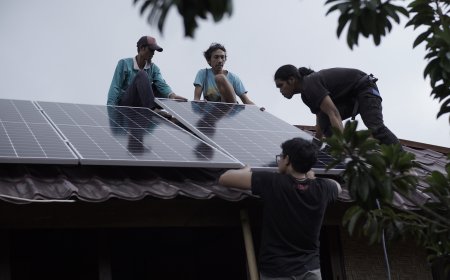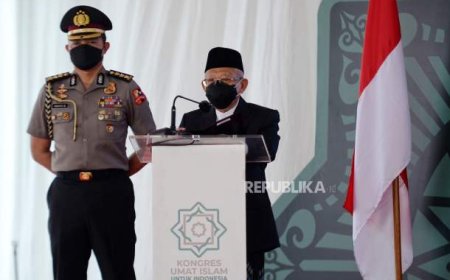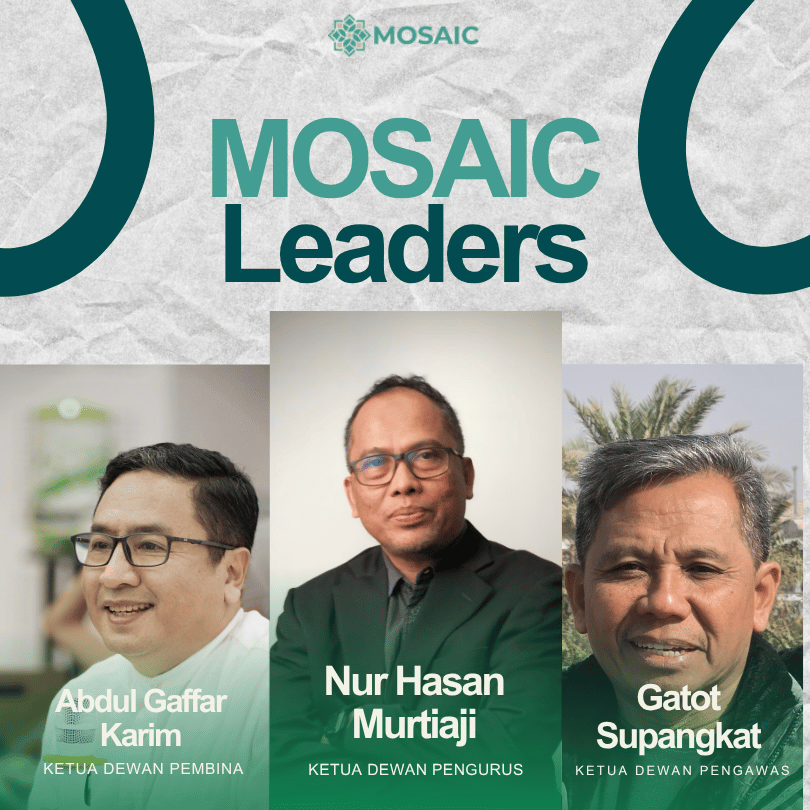Muslim Youth's Efforts to Campaign Against The Impact of Climate Change
A number of young Muslims from various regions were brought together to raise awareness about the impact of climate change.
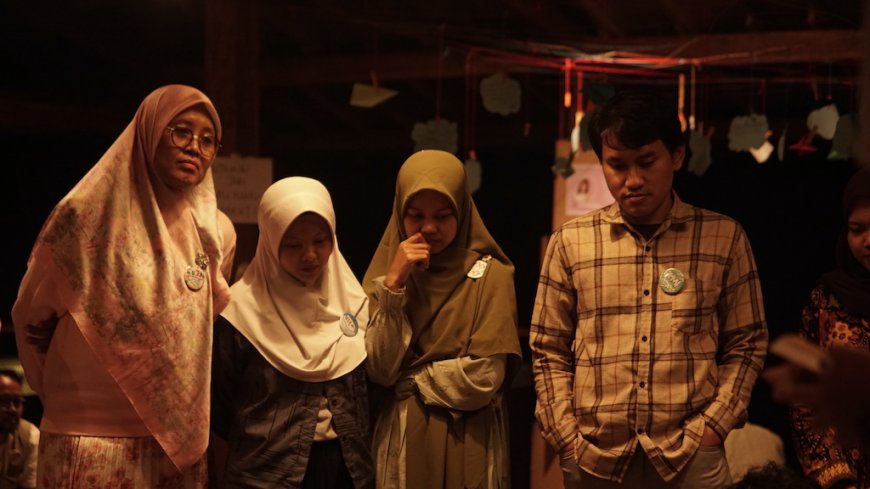
The impact of climate change continues to be felt by people in various parts of the world, including Indonesia. Not wanting to remain silent watching their environment being damaged by the climate crisis, a number of young people have decided to carry out preaching in various ways. This effort is carried out so that more people are aware and then take action together to prevent the damage from getting worse.
Siti Maryam Ulfah (39) had mixed feelings when she arrived at Timbulsloko Hamlet, Timbulsloko Village, Sayung District, Demak Regency, Central Java, Thursday (6/2/2025) evening. The resident of Kilo District, Dompu Regency, West Nusa Tenggara, seemed to be in disbelief when she saw the houses standing in the middle of the puddles of water.
The houses in Timbulsloko Hamlet have been hit by tidal flooding since 2008. Over time, the tidal flood, which initially came and went, began to inundate the hamlet in 2018.
Because they do not have the money to move to another place, residents adapt by raising their houses. They also make stages or decks to avoid the water when the tide is high.
In addition to building houses, residents also built access roads from wood and bamboo connecting the houses. All of this was funded independently by the community.
"I felt angry, upset, and sad. They were so resigned, having to endure and repeatedly raise their houses. I realized that this is how dangerous the impact of climate change is," said Siti.
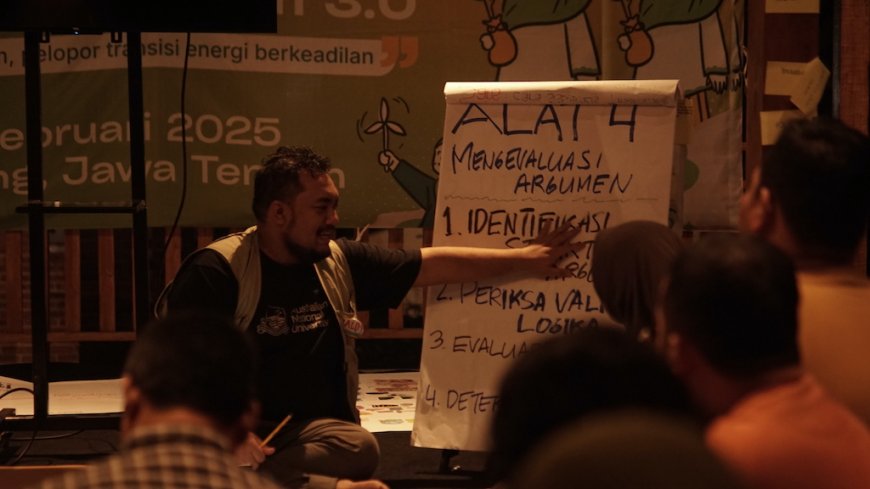
The flood that hit Timbulsloko occurred due to several factors. One of them is the increase in sea levels triggered by the melting of ice in the polar regions due to the increase in global temperatures. At the same time, the Sayung District area continues to experience land subsidence due to the continuous extraction of groundwater for industrial purposes.
In addition, experts also suspect that the tidal flood in Sayung was triggered by massive development in the Tanjung Emas Port area, Semarang City, Central Java. The development caused the ocean current that should have headed towards Semarang to move towards Sayung which then increased the volume of water on the Sayung mainland.
Siti, who lives in a coastal area, is also worried that what happened in Timbulsloko will also happen in her hometown. In the future, the woman who works as the Principal of Ar Raihan Kilo Integrated Islamic Elementary School promises to be more active in educating students at her school about the importance of protecting the environment.
"I feel we have to be more aggressive in educating. Because, if we just keep quiet, our area will be like this, sinking too. I believe, spreading the issue from school is important because later it will spread to everyone, slowly," said Siti.
The free school founded by Siti now has 70 students from grades I to III. There are six teachers, including Siti, who teach the students every day. They not only teach general subjects, but also environmental materials. Students are invited to plant trees, clean beaches, and sort and recycle trash to reduce the impact of climate change.
M Amrul Khair (26), a resident of Donggala Regency, Central Sulawesi, also had the same fears as Siti after seeing the conditions in Timbulsloko. The man who works as a disaster consultant at the Muhammadiyah Disaster Management Center in Central Sulawesi learned many lessons from the stories of residents in Timbulsloko.
So far, Amrul has been a companion for residents in two villages affected by tidal flooding in Sirenja District, Donggala. Unlike the tidal flood in Timbulsloko, the tidal flood in the two villages ebbs and flows. However, some residents in the area chose to move, not adapting like the residents of Timbulsloko.
"I got a lot of insights, especially on how people can adapt here. In the areas I assist, when they are hit by a tidal wave, they immediately relocate because the location is there," said Amrul on the sidelines of his activities in Timbulsloko, Thursday.
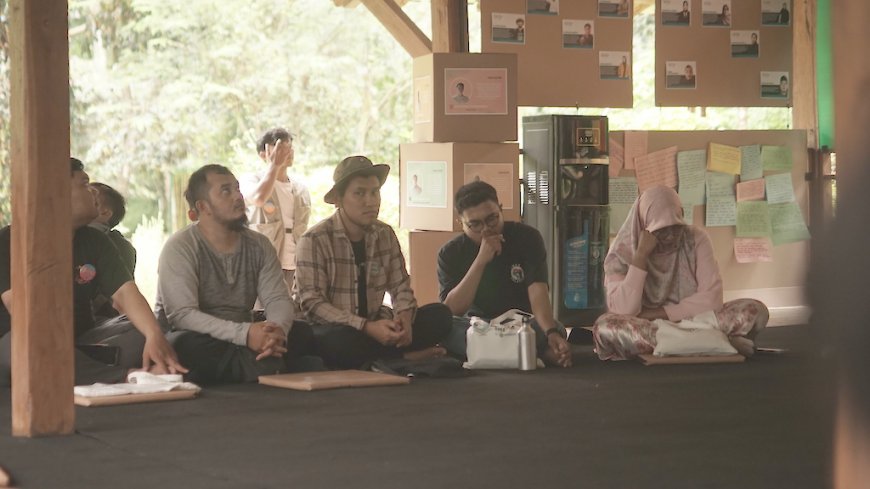
According to Amrul, adaptation as carried out by the community in Timbulsloko is one alternative that can be applied in the two villages he assists. These adaptation methods, said Amrul, will be informed to the community and local government so that they can be imitated.
"I just found out that there is a method like this that is applied by the people here. So, they can really live side by side with disasters. That's what we actually want to apply in Sulawesi because it is one of the prone areas, almost the same as here," said Amrul.
Siti and Amrul are two of the 20 participants in the Climate Hijrah Workshop program initiated by Muslims for Shared Action on Climate Impact (Mosaic). In the activity, the young Muslim men and women who are leaders in their communities were given material on the impact of the climate crisis and how they should play a role in responding to the challenges of the climate crisis.
In addition, the participants aged 22-40 years were also taught environmental jurisprudence and the concept of renewable energy alms. This is considered important because the knowledge intersects with the activities carried out by the participants in their communities, organizations, and environments.
"After the activity, participants were asked to take initiatives or solutions to the climate crisis, which we will help them form through incubation, mentoring, and coaching. We also provide a little funding to be a catalyst for their initiatives," said Mosaic Project Lead, Aldy Permana.
According to Aldy, this year is the third year that the Climate Hijrah Workshop has been held. To date, 40 alumni of the program have formed eight solution projects to overcome the climate crisis, one of which is developing a climate curriculum in Islamic boarding schools.
Trusted
Aldy said that the program was initiated because his party did not agree with a survey from an institution in 2020 which stated that Indonesian society was ranked first as a society that ignored the issue of climate change.
In 2021, Mosaic conducted a national survey on climate change, but with language and terms that are more understandable to the public. The survey found that the majority of the public cares about the impacts of climate change.
"From the survey, we also got an interesting finding, namely about who the most trusted messengers are in conveying the issue of climate change. At that time, religious leaders were in second place. In first place were local governments and in third place were scientists. That encouraged us to involve religious leaders, preachers, and future Islamic leaders in raising awareness about the impacts of climate change," said Aldy.
Niki Alma Febriana Fauzi, a lecturer at the Hadith Study Program at Ahmad Dahlan University, Yogyakarta, who was also a facilitator in the activity, said that Muslims are not only required to worship God, but are also encouraged to maintain relationships with others and the environment. This is because doing good and doing good deeds to humans and the universe is part of worshiping God.
"Perhaps all this time when we talk about religion, especially Islam, it is assumed that a religious person is someone who diligently prays, fasts, performs the hajj, and umrah many times, maybe so. But, we never see how a Muslim who cares about the environment, he advocates for victims of certain groups who exploit the environment, that is also part of worship," said Niki.
Field visits such as those carried out by participants to Timbulsloko are activities that Niki considers necessary to hone sensitivity and conscience. As leaders of the Islamic community, they are encouraged not to just sit behind a desk, open books, and answer questions based on existing texts.
"With activities like this, we are brought closer to real problems in society. The understanding that has been obtained from textual sources can then be dialogued with problems or realities that are expected to produce solutions that produce benefits," he said.
Meanwhile, Indonesia Country Lead Aktivasia, Didit Haryo Wicaksono, who was also involved in the activity, assessed that the experience of visiting and interacting directly with the community in Timbulsloko could provide a complete picture of how the climate crisis has continuously eroded the community. Moreover, in overcoming the problem, Didit assessed that the government's presence was very minimal.
"So, they don't just hear or see from films or social media, but feel it directly, interact with people whose yards are really being eroded by the climate crisis. So that they understand, the climate crisis is not a myth, and as young Islamic broadcasters, they have a responsibility to respond and spread this truth so that Indonesian people, especially Muslims, have a more complete awareness of the climate crisis," said Didit.
Didit said, educating and making people aware of climate change issues is not easy. This is because some people still consider climate change issues not crucial issues, especially in the midst of economic conditions that are not good.
"But, we really hope that the public will at least be more aware that welfare cannot be separated from good environmental conditions. And, of course, we must solve this condition together so that public awareness can grow. So, with the growth of public awareness of environmental issues, we hope that this can encourage the state to be more serious about talking about environmental issues and public awareness to contribute to protecting the environment increases," said Didit.

